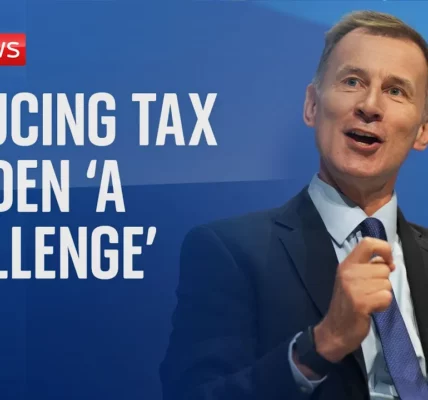Analysis of the Conservative Manifesto: Unfunded Commitments and Economic Claims

This article provides a comprehensive analysis of the upcoming Conservative Manifesto, examining the validity of economic claims made by the party, particularly regarding unfunded commitments and tax avoidance savings. We will dissect the assertions presented and reveal the inconsistencies that could impact the British economy.
Introduction
The Conservative Manifesto is set to launch tomorrow, promising a series of economic pledges aimed at addressing pressing issues faced by the British public. However, as history has shown, political manifestos often contain a mix of hope and reality. In this article, we will explore the claims made by the Conservative Party regarding their economic strategies, specifically focusing on three main aspects: the alleged welfare savings, tax avoidance strategies, and the financial viability of new initiatives. The aim is to uncover whether these claims hold water or if they are merely an elaborate facade.
Unpacking Welfare Savings Claims
Understanding the Conservative Party’s Promises
One of the bold claims made by the Conservative Party involves the assertion that they can generate £12 billion in welfare savings. However, this claim warrants scrutiny. The details surrounding these supposed savings reveal a troubling narrative.
- Work Capability Assessment Reforms: The government has previously announced reforms to how the benefit system assesses work capability. The Office for Budget Responsibility (OBR) predicted only £1.3 billion in savings from this initiative, which are already allocated within the existing spending baseline.
- Fit Notes Reform: The projected savings in this area are also already factored into government plans, thus rendering any new claims of savings void.
- Benefit Claims Closure: Proposals to close benefit claims for individuals out of work for a year have been previously recognized and accounted for, indicating no additional savings can be claimed.
The Reality of Mental Health Funding
The Conservative Party’s promise of increased funding for mental health services is another area of concern. Previous announcements regarding funding for talking therapies suggest that any potential savings do not outweigh the costs involved, leading to the conclusion that the money for these initiatives is not genuinely available.
Challenging the Legitimacy of Tax Fraud Claims
Claims aimed at tackling benefit fraud have been overstated. The rise in overpayments due to fraud and error has increased significantly, and thus any claims that the Conservatives will be saving money in this area must be approached with skepticism.
Examining Tax Avoidance Strategies
Projected Savings from Tax Avoidance
The Conservative manifesto mentions a target of £6 billion in savings from tax avoidance measures. However, the feasibility of these projections raises crucial questions.
- Existing Tax Plans: The Labour Party’s existing tax avoidance plan indicates an upfront investment of £900 million in HMRC staffing and technology, necessary to achieve the projected savings. This investment reduces the net savings to approximately £5.1 billion.
- Funding Initiatives: The Conservative plans to fund various initiatives, such as the National Service Scheme, through these projected savings are flawed due to the miscalculation of costs.
The National Service Scheme: A Costly Mistake
The proposed National Service Scheme, which aims to recruit 30,000 young people annually, has been grossly underestimated in terms of cost. Initial estimates suggest a £2.5 million annual budget, but evidence indicates that the actual cost may be double that amount when considering training, accommodation, and supervision expenses. This miscalculation further underscores the lack of solid financial footing in the Conservative proposals.
Conclusion
In summary, the analysis of the Conservative Manifesto reveals a troubling pattern of unfunded commitments, overinflated savings claims, and questionable economic strategies. The assertion that significant savings can be generated from welfare reforms and tax avoidance measures lacks the necessary substantiation. As the British public prepares to hear these pledges, it is vital to approach them with a critical eye, recognizing the potential consequences of unfounded promises. The Labour Party stands firm in its commitment to sound public finances, refusing to engage in an arms race of unfunded pledges. As we await the release of the Conservative Manifesto, one thing remains clear: the money is simply not there. We invite readers to stay informed and engaged, as understanding these dynamics is crucial for making informed decisions in the upcoming election.
“`




